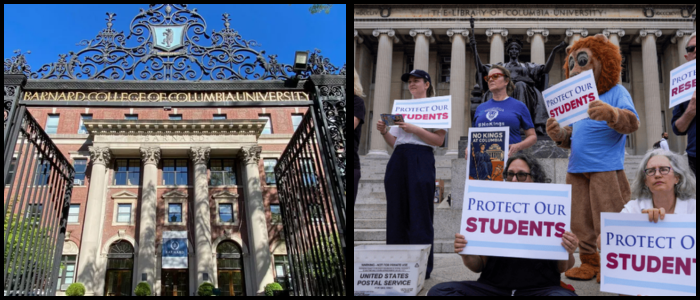The Trump administration had previously suspended or withdrawn $400 million in federal grants to Columbia in March, in part because of the university's treatment of some antisemitic incidents. In exchange for the settlement, the government will reinstate a significant amount of the funding it had blocked.
Columbia was the first in what has become a wider push by the administration to clamp down on higher education institutions that it accuses of having misspent federal funding or of not protecting civil liberties. Linda McMahon, the education secretary, called the settlement "a seismic shift in our nation's battle" to force universities to take responsibility.
Claire Shipman, Columbia's acting president, said in a statement that the agreement represented a positive resolution to what she called a period of "sustained federal scrutiny and institutional uncertainty" in the last months.
Campus Changes and Ongoing Debate
The university said the agreement is not an admission of wrongdoing. But the agreement calls for Colombia to adopt a variety of policy changes, many of which had already been instituted earlier in the year under federal pressure. These comprise the reordering of the Middle Eastern studies department, the recruitment of new "special officers" with powers of arrest and greater regulation of campus protests.
Columbia will also discipline students who took part in last year's Gaza protest encampments, limit protests by requiring campus identification, ban face masks at demonstrations, broaden campus security, and oppress into silence rather than engage in peaceful objection.
The agreement also requires an independent monitor, jointly selected by the university and the government, to ensure that the agreement is enforced. While acknowledging Columbia's commitment to academic freedom, Shipman said the terms were crafted to ensure that the university could continue to live by its core values and to sustain vital research relationships with the federal government.
President Trump applauded the university's agreement, claiming it reflected a move toward merit-based, and away from diversity, equity, and inclusion (DEI) initiatives. In his Truth Social account, he said Columbia's actions would safeguard students' civil rights and serve as a cautionary message to other colleges.
A National Revolution in College Oversight
Columbia is among a number of universities whose federal response is under scrutiny. The administration has examined more than 4,000 grants — at more than 600 institutions — totalling roughly $8 billion in potential terminations, according to data compiled by a policy tracker. And while Columbia opted to settle and reform, other institutions have pursued a different route. Like the University of California, it is responding in the courts, where it is challenging the funding cutoff and restrictions on international student enrollment. Legal warfare between Harvard and the federal government erupted this week.
The Trump administration has said it would like to see more schools do what Columbia has done. In a statement, McMahon labelled the settlement "a roadmap for the elite universities" and noted that the changes could fundamentally alter the campus culture for decades.Columbia said the agreement is intended to proceed without sacrificing its independence. Some critics, however, say that the university made too many concessions in its willingness to cooperate.
Top

Columbia to Pay $200M in Trump-Era Settlement

Columbia University will pay $200 million to the federal government after being blamed for failing to secure Jewish students on its campus amid protests last year over the Israel-Gaza war."This is a clear moral failure on the part of the university and an act of profound bad faith," said Campus Director Bruce Brodsky. Both the university and President Donald Trump's administration confirmed the settlement, which will be paid over three years.











